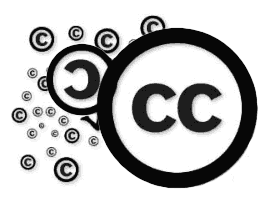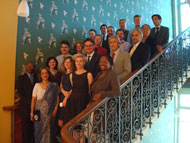The impact of intellectual property regimes on the enjoyment of right to science and culture
Special Rapporteur in the field of cultural rights
Intellectual property regimes represent an important field of international law. However, not much work has been done to examine the impact of these regimes on human rights, or to adopt a human rights perspective to their application.
In 2014, the Special Rapporteur decided to engage in a thematic study on the issue of the impact of intellectual property regimes on the enjoyment of right to science and culture, as enshrined in particular in article 15 of the International Covenant on Economic, Social and Cultural Rights. Her findings provided material to present two consecutive reports, one to the Human Rights Council (March 2015) and one to the United Nations General Assembly (October 2015).
Human rights impacted by intellectual property regimes
Intellectual property regimes can have an impact on a number of rights, in particular on:
- the right of people to enjoy and access cultural heritage;
- access by everyone without discrimination to the benefits of science and its applications, including scientific knowledge, technology, and opportunities to contribute to the scientific enterprise;
- the freedom indispensable for scientific research, including access of researchers to scientific information and advances, as well as collaborative work;
- artistic freedoms and the right of people to access, contribute to and enjoy the arts;
- he right of everyone to benefit from the protection of the moral and material interests resulting from any scientific, literary or artistic production of which he or she is the author; and
- the rights of indigenous peoples and local communities.
Reports
Copyright policy and the right to science and culture (2015)

In her 2015 report to the Human Rights Council, the Special Rapporteur examined more closely copyright law and policy from the perspective of the right to science and culture (A/HRC/28/57). She emphasized both the need for protection of authorship and increased opportunities for participation in cultural life.
The report recalls that "intellectual property" is an umbrella term encompassing a number of distinct legal regimes that create private property rights related to intangible assets. As protection of authorship differs from copyright protection, the Special Rapporteur proposed several tools to advance the human rights interests of authors, as well as ways to expand copyright exceptions and limitations to empower new creativity, increase educational opportunities, preserve space for non-commercial culture and promote inclusion and access to cultural works. She also recommended to promote cultural and scientific participation by encouraging the use of open licenses, such as those offered by Creative Commons.
More information available on the copyright policy report page
Patent policy and the right to science and culture (2015)
The 2015 report to the General Assembly continued the work on intellectual property addressing the implications of patent policy for the human right to science and culture (A/70/279). The Special Rapporteur reaffirmed the distinction to be made between intellectual property rights and human rights, emphasizing that the right to the protection of the moral and material interests of authors does not necessarily coincide with the prevailing approach to intellectual property law. There is no human right to patent protection.
The right to protection of moral and material interests cannot be used to defend patent laws that inadequately impact the right to participate in cultural life, to enjoy the benefits of scientific progress and its applications, to scientific freedoms, as well as the rights to food and health and the rights of indigenous peoples and local communities.
The Special Rapporteur recalls that, when properly structured, patents may expand the options and well-being of all people by making new possibilities available. Yet, they also give patent-holders the power to deny access to others, thereby limiting or denying the public's right of participation to science and culture. The human rights perspective demands that patents do not extend so far as to interfere with individuals' dignity and well-being. Where patent rights and human rights are in conflict, human rights must prevail.
Whereas from the perspective of trade law, exclusions, exceptions and flexibilities under international intellectual property law, such as the World Trade Organization Agreement on Trade-Related Aspects of Intellectual Property Rights, remain optional, from the perspective of human rights, they are often to be considered as obligations.
Read more information on patent policy and the right to science and culture on the patent policy report page.
Related events and materials

- Video conference of the Special Rapporteur on the impact of copyright policies on the enjoyment of cultural rights, Committee on Legal Affairs of the European Parliament, Brussels, Belgium, 6 May 2015
- Participation of the Special Rapporteur in a round table discussion on "Intellectual property and cultural rights", organized by IFACCA Australia, University of Technology Sydney, Australia, 21 April 2015
- Feature story: Copyrights should not infringe on cultural rights, 1 April 2015
- Day of consultation on "Cultural rights, intellectual property and traditional knowledge", organized in collaboration with the Secretariat of the Pacific Community, the regional UNESCO office for the Pacific and the World Intellectual Property Organization (WIPO), Honiara, Solomon Islands, 10 July 2012
Resources in the UN human rights system
- General Comment no. 25 (2020) of the Committee on Economic, Social and Cultural Rights on Science and economic, social and cultural rights, Art. 15.1.b, 15.2, 15.3 and 15.4
- Day of general discussion on the right to enjoy the benefits of scientific progress and its applications (art. 15.1 b), Committee on Economic, Social and Cultural Rights, 9 October 2018, documents from experts and written contributions
- General Comment 17 (2006), of the Committee on Economic, Social and Cultural Rights on the right of everyone to benefit from the protection of the moral and material interests resulting from any scientific, literary or artistic production of which he or she is the author
- Day of general discussion on the right of everyone to benefit from the protection of the moral and material interests resulting from any scientific, literary or artistic production of which he or she is the author (art. 15.1 c), Committee on Economic, Social and Cultural Rights, 27 November 2000, summary of discussions
Useful links
- Sub-Commission on Human Rights
- Report 1995/26 on the Protection of the heritage of indigenous people
- Resolution 2000/7 on Intellectual property rights and human rights
- United Nations Declaration on the Rights of Indigenous Peoples (2007)
- Convention on Biological Diversity (1992) and its Nagoya Protocol on Access to Genetic Resources and the Fair and Equitable Sharing of Benefits Arising from their Utilization (2010)
- WIPO Intergovernmental Committee on Intellectual Property and Genetic Resources, Traditional Knowledge and Folklore
- United Nations Conference on Trade and Development (UNCTAD) and International Centre for Trade and Sustainable Development, Resource Book on TRIPS and Development(2005)
- United Nations Educational, Scientific and Cultural Organization (UNESCO), "The right to enjoy the benefits of scientific progress and its applications" (Paris, 2009).
- Special Rapporteur on the right to food, report on Seed policies and the right to food (A/64/170)
- Article 19, The right to share: Principles on Freedom of Expression and Copyright in the Digital Age(2013)
- Venice Statement on the right to enjoy the benefits of scientific progress and its applications (2009)
- Lea Shaver
- "The right to science and culture" (2010)
- "Copyright and Inequality" (2014)
- Creative commons
- International Federation of Library Associations and Institutions (IFLA)